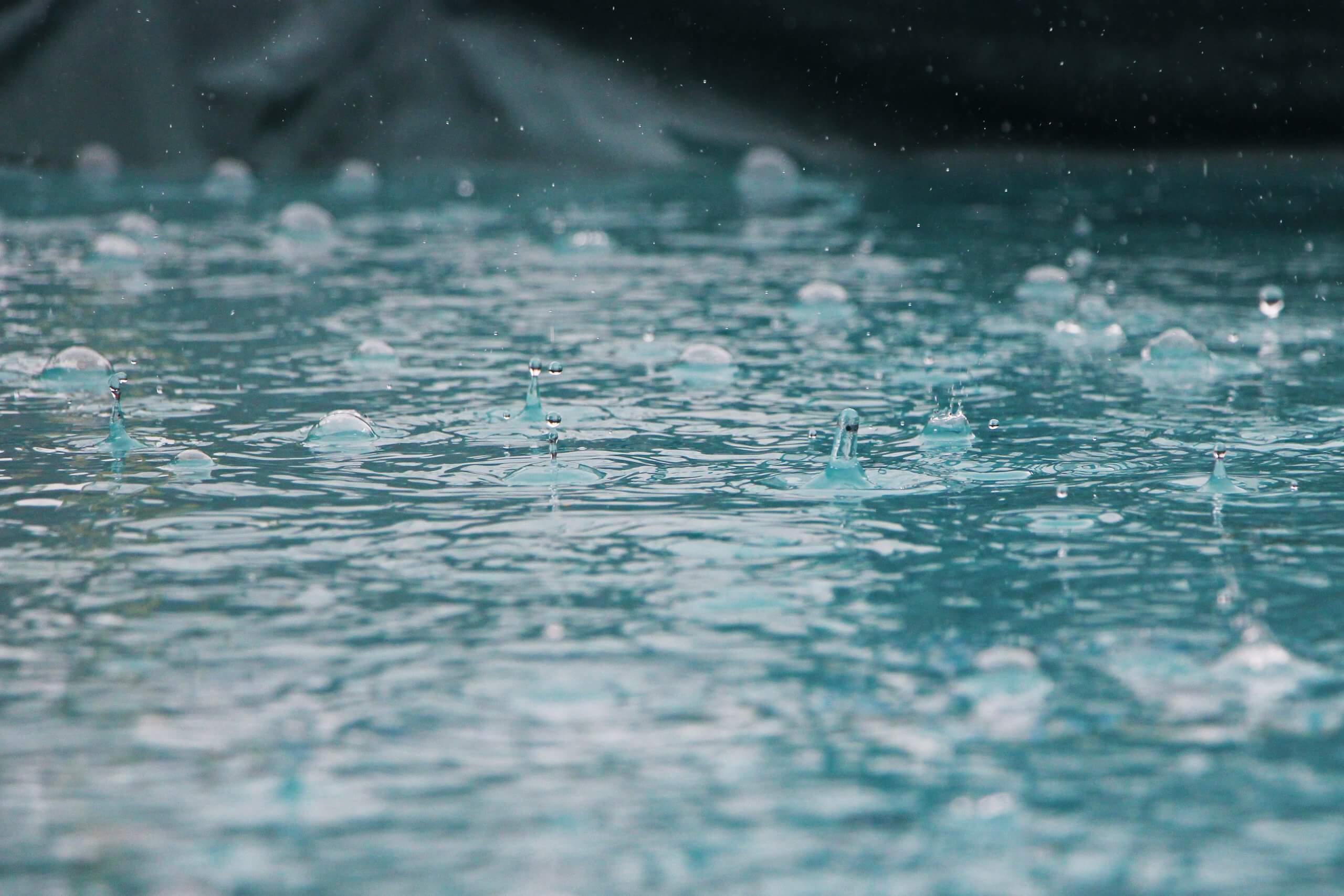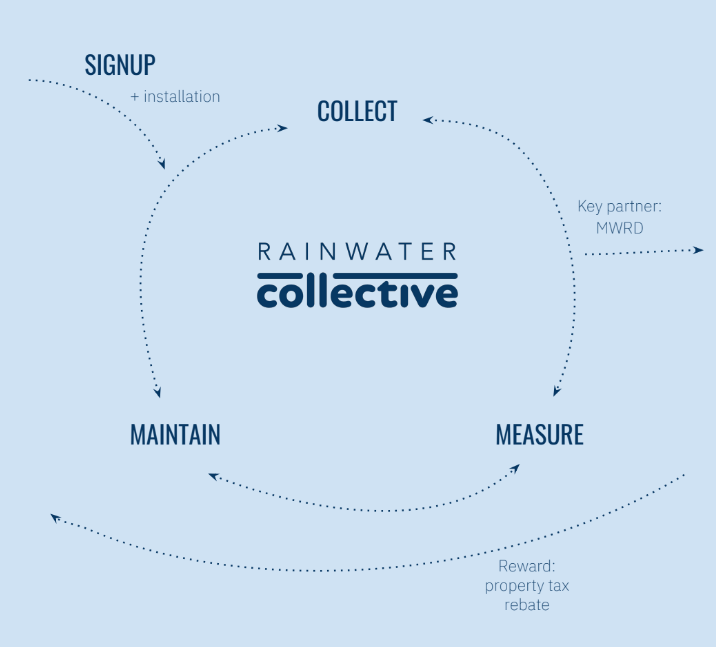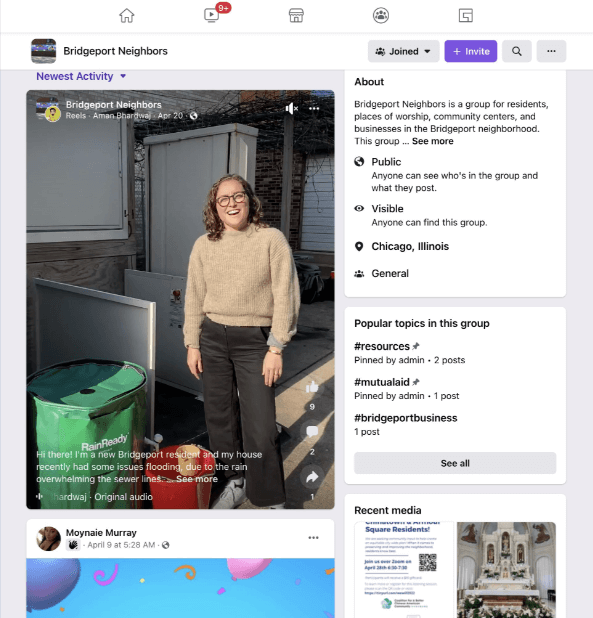
Though water is often perceived as an infinite resource, this is actually not the case.
According to the United Nations, by 2050, two-thirds of people will live in cities and the world’s population will reach 10 billion people. This will increase the demand for water by 55 percent. In our own city of Chicago—yes, even Chicago with its access to Lake Michigan—we will run out of fresh water. This will happen even if we reach net zero emission targets.
Freshwater conservation is a grave concern no one seems to be paying attention to. With climate change causing extreme variations in temperature and precipitation, we need civic infrastructures that safeguard the future of growing urban populations.
The city of Chicago faces a bevy of water-related problems: urban flooding, 100-year-old water infrastructures prone to breaking, sewer blockage during storms, and that common yet mistaken notion that we have an unlimited water supply from Lake Michigan.

We would be wise to start recognizing rainwater for the valuable asset to sustainability that it is, and to set up resilient systems which ensure that water remains a public utility accessible to all citizens.
To do so, ID students Aman Bhardwaj (MDes 2023), Kavya Rai (MDes 2022), and Palak Shah (MDes 2023), in partnership with Fjord (now Accenture Song), designed Rainwater Collective, a stormwater collection and support service for Chicago homeowners. The service seeks to tie the longer-term threat of a freshwater deficit with current-day concerns by facilitating a public–private collaboration and community involvement. Rainwater Collective’s barrels capture rainwater and allow communities to contribute to citywide water efforts in reclaiming water from a renewable resource.
ID students first focused on understanding the problem and its context by conducting desk research and in-depth interviews with residents of Bridgeport, a working-class residential neighborhood on Chicago’s South Side. Through their research, they found that Chicago citizens are reluctant to get involved in the city’s water conservation efforts. This is due to a lack of transparency in the government’s actions and a lack of information about the kind of impact individual citizens could make by changing their behavior.

After getting a fuller picture of the problem area, the ID team tested hypotheses with Bridgeport homeowners. Through this research, team members identified ways to address homeowners’ lack of awareness and/or lack of concern regarding water and its conservation, and found ways to bridge the gap between existing water systems and homeowner attitudes.
Utilizing the user personas they created based on their research and interactions with the homeowners, the ID team integrated behavioral design tools, such as scarcity and gamification, in order to get a critical mass of community members involved. The team aligned with a key partner, the Metropolitan Water Reclamation District (MWRD), which would be responsible for collecting and treating the rainwater.
The team’s final step was to demonstrate the efficacy of its proposed service. They created a video to demonstrate the service and posted it to community-based social apps such as Facebook and Nextdoor as a way to validate their idea. It was received very positively by the community.
By blending research with live experiments, the ID team evaluated and refined initial ideas, developing a systematic, scalable solution.
In just four simple steps, the proposed Rainwater Collective system enables all kinds of households, from single-families to empty-nesters, to contribute renewable water. This results in substantial efficiency for the city’s water reclamation efforts:
- Sign up: Communities express their interest by signing up online and rain barrels are installed in homes by the Rainwater Collective team.
- Collect: When their barrels are full, users send a text message to schedule pick-up. The collected water is managed by the Metropolitan Water Reclamation District of Chicago (MWRDC).
- Maintain: MWRDC provides seasonal maintenance of the barrels at no cost.
- Measure: Up to $2,000 in property tax rebates are given to every subscribed homeowner based on the amount of water collected.
The Rainwater Collective team hopes that this project will contribute to tackling water shortage in the city of Chicago, so that each household contributes to their own water usage. It also helps reduce flooding from overwhelmed sewers. For communities, this service builds a sense of accountability and responsibility as well as creates a level of transparency on impact between neighborhoods and the government. For the city, it guarantees a supply chain of fresh water, and saves money from building and repairing water infrastructures. If successful, this service model can be adapted and scaled to cities around the world.